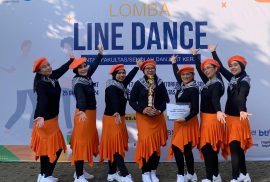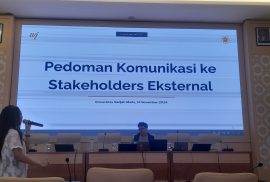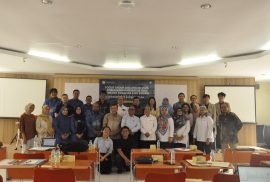Yogyakarta, Thursday, November 28th, 2024. Faculty of Cultural Sciences Universitas Gadjah Mada through the Department of Archaeology UGM received a visit from Iwate University, Japan. The agenda of the visit is part of the exploration of cooperation plans between Iwate University and the UGM Department of Archaeology to discuss potential plans for educational visits next year at Gadjah Mada University, for Iwate University students. On this occasion, the Head of the UGM Department of Archaeology, Dr. Mahirta, MA, along with the Secretary of the Department, Drs. Musadad, M.Hum., and Archaeology UGM study programme lecturer, Dwi Pradnyawan, S.S., M.A., met with representatives from Iwate University, Anders Carlqvist, Associate Professor of Iwate University International Education Center and Hiroya Yaegashi from Chief Administrative Staff, Iwate University International Office, to discuss the possibility of giving lectures on archaeology to Iwate University students as part of the educational visit.
After the discussion session ended, the group of Iwate University and the UGM Department of Archaeology took a group photo. They were also invited to tour Mandala Majapahit, a small museum located inside the laboratory of Margono Building, to see a number of artifact replica collections available. From this exploration of cooperation, it is expected to improve the quality of education for the UGM Department of Archaeology and Iwate University, in supporting cooperation in the field of quality and sustainable education.






